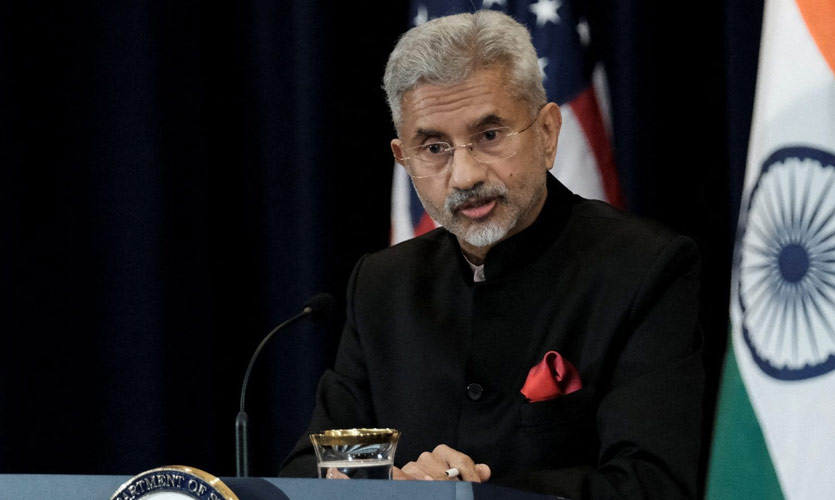The fourth India-US 2+2 ministerial dialogue hosted by the United States, is currently underway. Defence Minister Rajnath Singh and External Affairs Minister Dr S Jaishankar landed in Washington on Sunday, to meet with their American counterparts, US Secretary of Defence Lloyd J Austin and Secretary of State Anthony J Blinken, to discuss strategic and security issues.
Ahead of the dialogue, US President Joe Biden and Prime Minister Narendra Modi held a virtual meeting on April 11. The two leaders discussed the Russian invasion of Ukraine and the conflict’s impact, particularly on the global food supply. Biden called the invasion a “horrific assault”, and praised India’s humanitarian efforts for the people of Ukraine.
PM Modi also expressed his concern over the ongoing conflict in Ukraine and called it “very worrying”, reiterating the importance of the safety of civilians in the country. While condemning the killings in Bucha he called for an independent probe. He also said that during his several calls with Russian President Vladimir Putin, he appealed to him for peace and urged him to hold direct talks with the Ukraine President Volodymyr Zelenskyy.
The Russian invasion of Ukraine has led several countries, including the US, to impose harsh sanctions on Moscow. Amid the sanctions, Moscow offered discounted Russian oil to India, which the country agreed to import. This has become a source of tension between India and the US. Washington has repeatedly discouraged New Delhi from importing Russian oil.
During the Modi-Biden virtual meeting, the US president reiterated that it is not in India’s best interest to “accelerate or increase” its oil import from Russia, adding that the US was willing to help New Delhi to diversify its energy imports. According to White House Press Secretary Jen Psaki, the meeting was “constructive” and “productive”, and not “adversarial”.
On late Monday, while presiding over a press briefing after the virtual meet, Psaki said that India importing oil from Russia does not violate any sanctions the US has imposed. “Energy imports are not banned and they do not violate our sanctions. We certainly recognise that every country is going to take a step in their interest.” She added that India only imports 1-2 percent oil from Russia and 10 percent from the US, and is “not in violation of any sanctions or anything along those lines”.
While addressing a joint press conference with Defence Minister Rajnath Singh and their American counterparts, External Affairs Minister Dr S Jaishankar defended India’s purchase of crude oil from Russia and said, “I noticed you refer to oil purchases from Russia… I would suggest that your attention should be focused on Europe… I suspect, looking at the figures, probably our total purchases for the month would be less than what Europe does in an afternoon. So you might want to think about that.”
These remarks were made in response to Secretary of State Bliken, who urged India not to increase their Russian oil imports. “Of course, we’re encouraging countries not to purchase additional energy supplies from Russia. Every country is differently situated, has different needs, requirements, but we’re looking to allies and partners not to increase their purchases of Russian energy,” he had said.
At the joint press conference, Secretary Bliken also said that the US is monitoring an increase in human rights abuses in India. He said, “We regularly engage with our Indian partners on these shared values (of human rights) and to that end, we are monitoring some recent concerning developments in India including a rise in human rights abuses by some government, police and prison officials.” The defence minister and the EAM did not respond to this or on the human rights situation in India, nor did Blinken elaborate further.
Bliken’s remark comes days after US Representative Ilhan Omar questioned the Biden administration’s alleged reluctance to criticise the Modi government on human rights abuses. Last week, during a congressional briefing, Omar, a Democratic Party member, had asked, “What does Modi need to do to India’s Muslim population before we will stop considering them a partner in peace?”
The statement was made amid a wave of communal tensions in India, including the recent hijab ban controversy in Karnataka, and several states considering passing anti-conversion laws to prevent religious conversions.
The most notable was the Modi government’s Citizenship (Amendment) Act, which sought to grant citizenship to Buddhists, Christians, Hindus, Jains, Parsis and Sikhs who fled Afghanistan, Bangladesh and Pakistan before December 31, 2014, but not Muslims.










